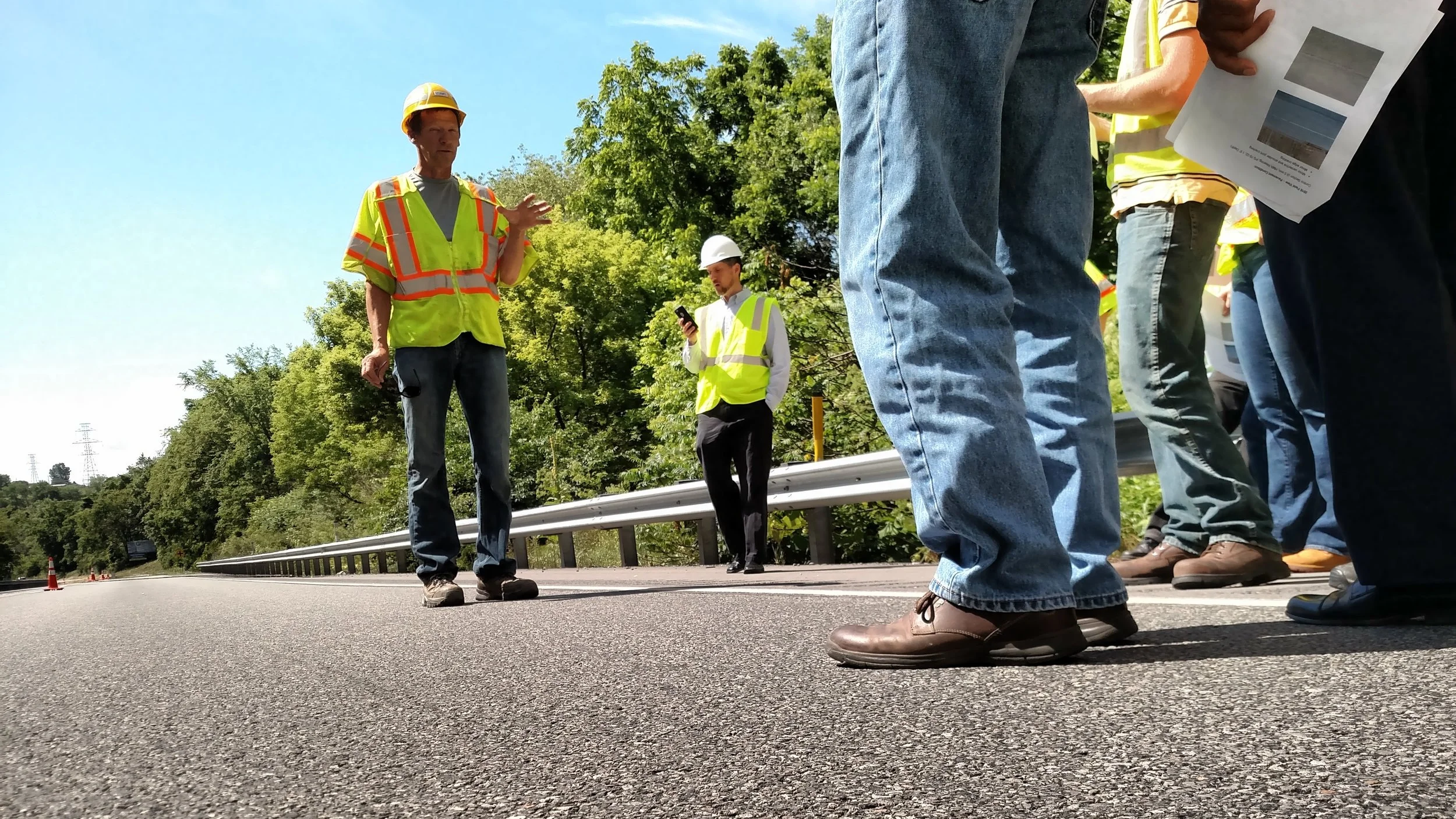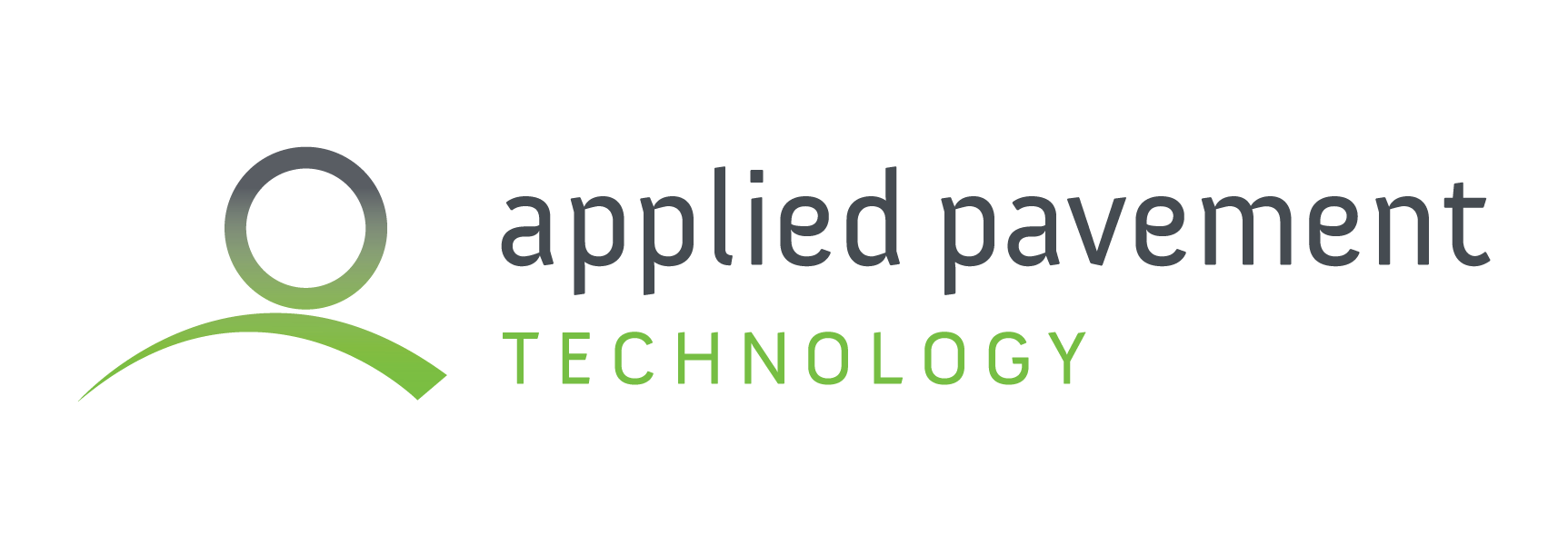
Investigation of Wildfire Impacts on Pavements
As part of its ongoing Indefinite Delivery Indefinite Quantity (IDIQ) with the Federal Highway Administration (FHWA), Applied Pavement Technology, Inc. (APTech) was recently awarded a contract to investigate and document the direct and indirect impacts of wildfires on pavement infrastructure.
This effort involves completing a comprehensive literature search and a series of interviews with selected agency personnel who frequently contend with wildfire emergencies and their associated effects. The support for this project will cut across a range of administrative, technical, and outreach activities that will result in the development of a set of reports and associated outreach materials.
Key Tasks
Literature review summary report
Identifying case study states
Interviewing case study states
Development of project summary report
Development of tech brief
Conduction of national-level webinar
The APTech team’s work on this project will not only present the current state of knowledge on wildfire impacts on pavements, but also set the stage for future work in this area by identifying critical information gaps and research needs.

FHWA Next Generation Pavement Performance Measures
As part of the FHWA’s efforts to implement performance-based transportation measures as required by the Moving Ahead for Progress in the 21st Century (MAP-21) Act, it contracted Applied Pavement Technology, Inc. (APTech) to identify more strategic next-generation measures to strengthen performance management and better link investments to long term performance. The objectives of the project were to identify, or conceptually develop, 1) more strategic pavement performance measures and their readiness for implementation and 2) methodologies to enable full implementation of a comprehensive asset management plan.
During task 1, APTech performed an in-depth literature review to identify potential pavement performance measures and investigate their feasibility. Considerations included how the performance data would be collected, analyzed, and presented, as well as potential costs and benefits of using the performance measure. Thirteen potential pavement performance measures were deemed worthy of more comprehensive evaluation. The proposed framework for further evaluation includes a condition metric, a life-cycle efficiency metric, and a financial health metric.
During task 2, APTech explored methodologies to enable full implementation of a comprehensive asset management plan by reviewing existing cross-asset trade-off and cross-asset allocation methods and documenting them in a technical memorandum. APTech then developed a methodology that uses the three common next-generation performance measures as the foundation of trade-off decisions and outcome reporting. The methodology was then described and conceptually illustrated in terms of its application with the pavements, bridges, and culverts asset areas.
During the work conducted during Tasks 1 and 2, it became apparent that there were gaps in available data and analysis tools to support the use of the most promising measures in transportation agencies, so APTech developed two work plans for future FHWA projects to further validate and test the proposed performance measures and cross-asset methodology.
National Highway Institute Course Development and Delivery
For over 13 years, we have worked with National Highway Institute to develop and deliver the latest in transportation training. This includes:
NHI 131139 Constructing and Inspecting Asphalt Paving Projects
NHI 134063 Maintenance Leadership Academy
NHI 134112 Principles and Practices of Enhanced Maintenance Management Systems
NHI 136106A An Introduction to Transportation Asset Management with Workshop
NHI 136106B Developing a Transportation Asset Management Plan
NHI 136002 Financial Planning for Transportation Asset Management
Participants consistently rate these courses highly, expressing appreciation for the quality of the content and the instructors.

FHWA SHRP 2 R21 Implementation Support: New Composite Pavement Systems
The FHWA has an ongoing interest in developing and deploying technologies to support improved concrete pavement performance and longevity. In support of these goals, the FHWA is conducting an indefinite delivery/indefinite quantity (IDIQ) project to promote and advance recommended best practices for the design, construction, repair, and rehabilitation of concrete pavements. Under Task Order 6 of the IDIQ, APTech supported the FHWA in implementing the new composite pavement system technologies developed under the SHRP2 R21 study.
Under this contract, we:
assisted four state highway agencies (SHAs) in the planning, design, and construction of new composite pavement systems and documented the project installations through detailed case studies.
worked with the California Department of Transportation to host a multi-state showcase on composite pavements that included a field demonstration of a two-lift concrete pavement project on I-210 north of Los Angeles.
developed comprehensive training materials on the design and construction of composite pavement systems and delivered it to highway agencies across the country.
worked with the Virginia Department of Transportation to organize and facilitate a multi-state peer exchange meeting to share knowledge on the applicability of and implementation strategies for composite pavement systems.
participated in various regional and national outreach activities to share information on composite pavement systems.

FHWA Sustainable Pavements Program
For over 10 years, APTech supported the Federal Highway Administration (FHWA) in the administration of its Sustainable Pavements Program through two separate competitively bid indefinite delivery/indefinite quantity contracts. In this capacity, we were responsible for carrying through FHWA initiatives in pavement sustainability and worked with a broad-based team to accomplish them. This included:
seeking stakeholder involvement to help promote concepts of sustainability,
developing specific guidance on more sustainable pavement practices, and
sponsoring outreach programs and technology transfer activities to share the latest information on the FHWA’s program.
A number of key task orders have been executed under each contract for this program, each led by APTech and supported by a core group of technical experts who combine expertise in pavement design, construction, and materials with various components of sustainability.
Under the most recent Sustainable Pavements Program contract, seven task orders were issued.
Task Order 1: Sustainable Pavements Program Roadmap
We developed a strategic Roadmap to provide a 5- to 10-year strategic direction for the FHWA’s Sustainable Pavements Program. The Roadmap focused on pavement sustainability in the areas of design, construction, preservation, and maintenance of asphalt and concrete pavements, and was designed to:
Work within the broader industry context of improving pavement sustainability
Be guided by the Program’s current purpose (defined as being to advance the knowledge and practice of sustainability related to pavements)
Concentrate specifically on topics and deliverables through which the FHWA can have real impact given its current scope and authority. The Sustainable Pavements Technical Working Group (SPTWG) was engaged in the effort to provide stakeholder feedback.
Task Order 2: Establishment, Organization, and Coordination of the SPTWG
We coordinated and provided support for the SPTWG, a stakeholder group providing input to the FHWA on the program. We scheduled and organized meetings, provided travel support to eligible SPTWG meetings, facilitated the meetings, and documented the overall results and action items. A total of 11 meetings of the SPTWG were conducted from 2016 to 2021, the last three in virtual format.
Task Order 3: Technology Transfer Toolbox
APTech provided technology transfer support to the FHWA on the subject of sustainable pavements and materials. This support included:
Preparation of ten technical presentations on various aspects of pavement sustainability,
Development of three Technical Briefs on topics related to pavement and materials sustainability, and
Continued development, maintenance, and population of the FHWA sustainable pavements website.
Together, these various activities became a "technology transfer toolbox" that supports FHWA in sharing pavement sustainability information to the at-large highway community.
Task Order 4: Sustainable Pavements Case Studies
APTech developed a series of case studies that highlight sustainable pavement technologies that were featured in the program’s Reference Document. These were defined as a practice, procedure, or innovation with positive sustainability impacts, and a total of ten case study reports were produced: In-Place and Central-Plant Recycling of Asphalt Pavements, Use of Blended Cements, Sustainability Rating Systems, Perpetual Asphalt Pavements, Long-Life Concrete Pavements, Inverted Pavements, Superpave5 Asphalt Surface Mix Design, Stone Matrix Asphalt and Open-Graded Friction Courses, Concrete Pavement Texturing, and Use of Recycled Concrete Aggregates.
Task Order 5: Environmental Impact Benchmarking Tool
Under this task order, we developed a Microsoft Excel-based tool (LCA PAVE) to aid agencies in assessing, benchmarking, and communicating the environmental impacts of the materials and construction processes associated with new pavement construction, reconstruction, rehabilitation, maintenance, and preservation. The tool has the ability to consider a range of environmental impact indicators and generates a multitude of output summary tables and graphics, all of which can be presented in a report template that is customizable by the highway agency. The LCA PAVE tool plays a critical role in the U.S. Department of Transportation’s BUY CLEAN initiative.
The success of APTech’s work was recently rewarded with a new follow-on contract for LCA PAVE technical support, enhancements, and outreach.
Task Order 6: Sustainable Pavements Education and Outreach
We helped the FHWA advance the state of sustainable pavement practices through a strategic marketing and outreach campaign. A series of marketing and outreach materials were developed to educate stakeholders on pavement sustainability and encourage them to use resources and tools produced under the Sustainable Pavements Program. Some of these resources included:
Several Tech Briefs on Environmental Product Declarations (EPDs)
Two videos highlighting asphalt and concrete recycling, respectively, and
Several flyers and one-pagers on various sustainability related topics.
Two webinar series—one that highlighted ways agencies can improve the sustainability of their pavements, and one on the use of the LCA PAVE tool developed under Task Order 5.
Task Order 7: Pavement Resilience Guidebook
In this task order, APTech examined the role of pavement resilience in addressing a number of emerging climate stressors and developed a summary document describing the current state of knowledge, practice and future needs. This information in our report was based on:
Key national and international climate documents,
An FHWA approach to resilience,
The results of an unpublished literature review, and
The findings from two FHWA-sponsored Peer Exchanges on pavement resilience held in late 2020.





